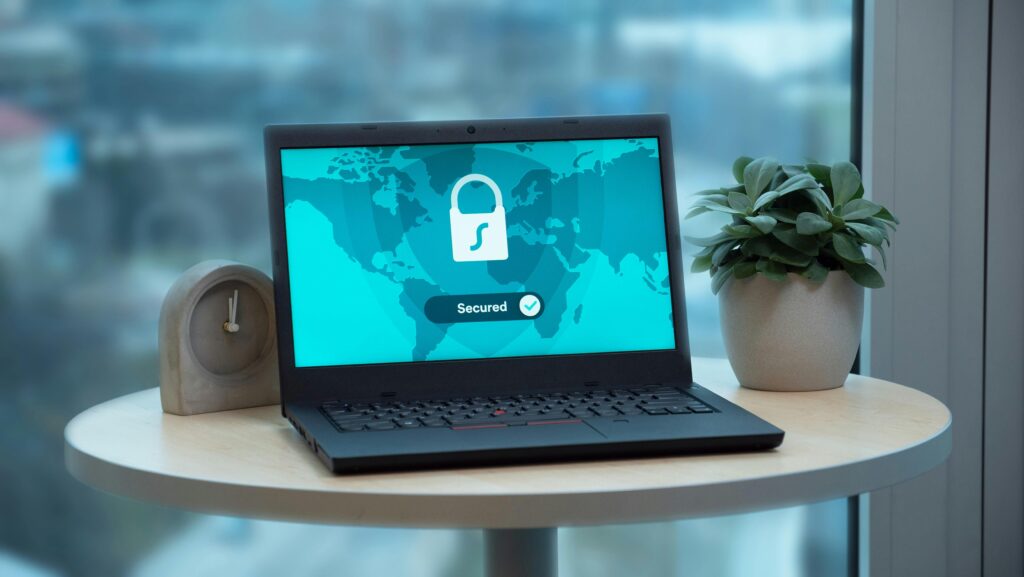For financial SMEs—whether you’re a financial advisor, mortgage broker, or accounting firm—cyber threats are no longer hypothetical. Cybercrime is an increasingly pervasive issue, targeting businesses of all sizes, with smaller enterprises particularly at risk. Despite the advanced security protocols of larger corporations, SMEs often lack the resources to implement robust defenses, making them prime targets for cybercriminals.
This article explores the financial implications of cybercrime, the causes of vulnerability, and practical steps your business can take to mitigate risks and safeguard sensitive client information.
What is Cybercrime?
Cybercrime refers to criminal activities carried out online, targeting systems, networks, and devices to access or exploit sensitive data. Common cyber threats include:

• Phishing Attacks: Fraudulent emails designed to trick employees into revealing credentials.
• Ransomware: Malware that locks data and demands payment for its release.
• Data Breaches: Unauthorized access to sensitive client and financial information.
• Denial of Service (DoS) Attacks: Disrupting systems by overwhelming them with traffic.
For financial SMEs, these threats pose significant risks to both operations and reputation.
Why Are Financial SMEs at Risk?
Cybercriminals often target smaller businesses for the following reasons:
1. Limited Security Resources
SMEs typically lack the budget to invest in advanced security systems or dedicated IT staff, leaving their systems more vulnerable to breaches.
2. Highly Valuable Data
Financial SMEs handle sensitive client data, including banking information, tax records, and personal details, which are highly valuable in the criminal marketplace.
3. Overconfidence
Many small businesses mistakenly believe they are too small to be targeted, leading to complacency in cybersecurity practices.
The Financial Impact of Cybercrime
The cost of cybercrime extends far beyond the immediate damage of a breach or attack. Here are the primary financial implications for SMEs:
1. Direct Costs
- Ransom Payments: If your business falls victim to ransomware, you may be pressured to pay to regain access to your data.
- Fines and Penalties: Non-compliance with regulations like the Privacy Act 2020 can result in hefty fines following a data breach.
2. Operational Costs
Recovering from an attack requires significant time and resources. Downtime disrupts operations, leading to lost productivity and revenue.
3. Reputational Damage
Clients entrust SMEs with sensitive information. A data breach can erode trust and drive clients to competitors, affecting long-term profitability.
4. Legal Expenses
Breaches often lead to legal proceedings, requiring you to allocate resources for representation and settlements.

How to Protect Your Business: Practical Solutions
Financial SMEs don’t have to accept cyber risks as inevitable. Here’s how your business can mitigate threats effectively:
1. Conduct a Cybersecurity Audit
Evaluate your current security measures to identify vulnerabilities. Key areas to review include:
- Password policies and user access controls.
- Data encryption methods.
- Employee awareness of cyber threats.
An audit provides a baseline for improvement.
2. Implement Robust Security Measures
Adopt tools and practices that fortify your defenses, such as:
- Multi-Factor Authentication (MFA): Adds an extra layer of protection for system access.
- Firewall and Antivirus Software: Detects and blocks malicious activity.
- Encryption: Secures sensitive data both in transit and at rest.
3. Educate Employees
Train your staff regularly on recognizing phishing emails, avoiding suspicious links, and reporting anomalies.
4. Backup Your Data
Automate backups to secure, encrypted cloud services or offline locations. Regular backups ensure that you can recover critical information without paying a ransom.
5. Monitor and Respond
Adopt real-time monitoring tools to detect and respond to unusual activity immediately. Early detection reduces the impact of potential attacks.
6. Partner with Cybersecurity Experts
Consider outsourcing to cybersecurity consultants who specialize in protecting SMEs. They can offer tailored solutions, from regular audits to incident response plans.

Why Proactive Security Is a Competitive Advantage
Investing in cybersecurity doesn’t just protect your business—it strengthens your reputation and builds trust with clients. In an industry where client relationships are paramount, demonstrating your commitment to safeguarding sensitive information sets you apart from competitors.
Highlight your security measures in marketing materials or client conversations. For example, share your use of encryption and secure cloud solutions, emphasizing the steps you take to protect client data.
At iT360, we’re committed to helping your business strengthen its cybersecurity measures through practical solutions and advanced technology.
If you’d like to explore how we can assist, Contact Us today to start the conversation!


